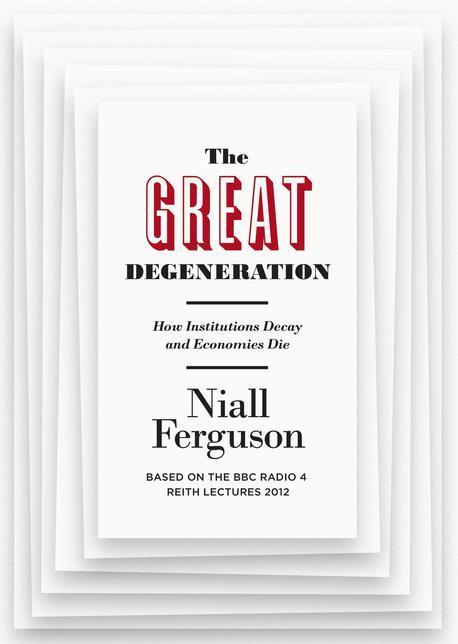
단행본
Kissinger
- 개인저자
- Niall Ferguson
- 발행사항
- New York, New York : Penguin Press, 2015
- 형태사항
- 986p. : illustrations ; 25cm
- ISBN
- 9781594206535
- 청구기호
- 942.073 N577
- 서지주기
- Includes bibliographical references and index
- 내용주기
- Volume 1. 1923-1968 : The idealist -- Heimat -- Escape -- Furth on the Hudson -- An Unexpected Private -- The Living and the Dead -- In the Ruins of the Reich -- The Idealist -- Psychological Warfare -- Doctor Kissinger -- Strangelove? -- Boswash -- The Intellectual and the Policy Maker -- Flexible Responses -- Facts of Life -- Crisis -- The Road to Vietnam -- The Unquiet American -- Dirt Against the Wind -- The Anti-Bismarck -- Waiting for Hanoi -- 1968 -- The Unlikely Combination -- Epilogue: A Bildungsroman --
소장정보
| 위치 | 등록번호 | 청구기호 / 출력 | 상태 | 반납예정일 |
|---|---|---|---|---|
이용 가능 (1) | ||||
| 1자료실 | 00015676 | 대출가능 | - | |
이용 가능 (1)
- 등록번호
- 00015676
- 상태/반납예정일
- 대출가능
- -
- 위치/청구기호(출력)
- 1자료실
책 소개
The definitive biography of Henry Kissinger, based on unprecedented access to his private papers, by an acclaimed historian at the height of his powers
No American statesman has been as revered and as reviled as Henry Kissinger. Once hailed as ?Super-K”?the ?indispensable man” whose advice has been sought by every president from Kennedy to Obama?he has also been hounded by conspiracy theorists, scouring his every ?telcon” for evidence of Machiavellian malfeasance. Yet as Niall Ferguson shows in this magisterial biography, the idea of Kissinger as the ruthless arch-realist is based on a profound misunderstanding. Drawing not only on Kissinger’s hitherto closed private papers but also on documents from more than a hundred archives around the world, Ferguson argues that the true foundation of Kissinger’s thought is philosophical idealism?combined with history itself.
The first half of Kissinger’s life is usually skimmed over as a quintessential tale of American ascent: the Jewish refugee from Hitler’s Germany who made it to the White House. But in this first of two volumes, Ferguson shows that what Kissinger achieved before his appointment as Richard Nixon’s national security adviser was astonishing in its own right. Toiling as a teenager in a New York factory, he studied indefatigably at night. He was drafted into the U.S. infantry and saw action at the Battle of the Bulge?as well as the liberation of a concentration camp?but ended his army career interrogating Nazis. It was at Harvard that Kissinger found his vocation. Having immersed himself in the philosophy of Kant and the diplomacy of Metternich, he shot to celebrity by arguing for ?limited nuclear war.” Nelson Rockefeller hired him. Kennedy called him to Camelot. Yet Kissinger’s rise was anything but irresistible. Dogged by press gaffes and disappointed by ?Rocky,” Kissinger seemed stuck?until a trip to Vietnam changed everything.
?
The Idealist?is the story of the single most important strategic thinker America has ever produced. It is also a political?Bildungsroman, explaining how ?Dr. Strangelove” ended up as?consigliere?to a politician he had always abhorred. Like Ferguson’s classic two-volume history of the House of Rothschild,?Kissinger?sheds dazzling new light on an entire era. The essential account of an extraordinary life, it recasts the cold war world.
No American statesman has been as revered and as reviled as Henry Kissinger. Once hailed as ?Super-K”?the ?indispensable man” whose advice has been sought by every president from Kennedy to Obama?he has also been hounded by conspiracy theorists, scouring his every ?telcon” for evidence of Machiavellian malfeasance. Yet as Niall Ferguson shows in this magisterial biography, the idea of Kissinger as the ruthless arch-realist is based on a profound misunderstanding. Drawing not only on Kissinger’s hitherto closed private papers but also on documents from more than a hundred archives around the world, Ferguson argues that the true foundation of Kissinger’s thought is philosophical idealism?combined with history itself.
The first half of Kissinger’s life is usually skimmed over as a quintessential tale of American ascent: the Jewish refugee from Hitler’s Germany who made it to the White House. But in this first of two volumes, Ferguson shows that what Kissinger achieved before his appointment as Richard Nixon’s national security adviser was astonishing in its own right. Toiling as a teenager in a New York factory, he studied indefatigably at night. He was drafted into the U.S. infantry and saw action at the Battle of the Bulge?as well as the liberation of a concentration camp?but ended his army career interrogating Nazis. It was at Harvard that Kissinger found his vocation. Having immersed himself in the philosophy of Kant and the diplomacy of Metternich, he shot to celebrity by arguing for ?limited nuclear war.” Nelson Rockefeller hired him. Kennedy called him to Camelot. Yet Kissinger’s rise was anything but irresistible. Dogged by press gaffes and disappointed by ?Rocky,” Kissinger seemed stuck?until a trip to Vietnam changed everything.
?
The Idealist?is the story of the single most important strategic thinker America has ever produced. It is also a political?Bildungsroman, explaining how ?Dr. Strangelove” ended up as?consigliere?to a politician he had always abhorred. Like Ferguson’s classic two-volume history of the House of Rothschild,?Kissinger?sheds dazzling new light on an entire era. The essential account of an extraordinary life, it recasts the cold war world.
목차
Volume 1. 1923-1968 : The idealist -- Heimat -- Escape -- Furth on the Hudson -- An Unexpected Private -- The Living and the Dead -- In the Ruins of the Reich -- The Idealist -- Psychological Warfare -- Doctor Kissinger -- Strangelove? -- Boswash -- The Intellectual and the Policy Maker -- Flexible Responses -- Facts of Life -- Crisis -- The Road to Vietnam -- The Unquiet American -- Dirt Against the Wind -- The Anti-Bismarck -- Waiting for Hanoi -- 1968 -- The Unlikely Combination -- Epilogue: A Bildungsroman --






